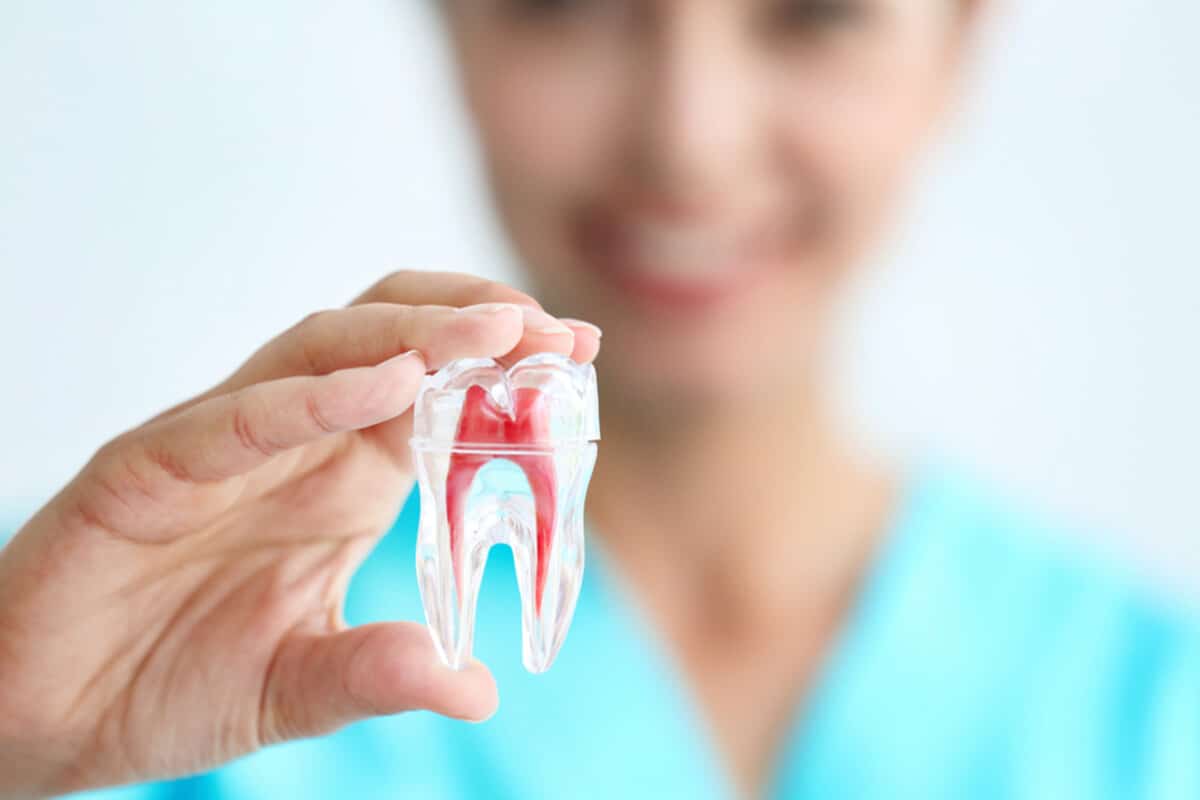When a root canal comes up in conversation, most of us tend to cringe, mainly because this situation usually occurs with our dentist. This restorative treatment is recommended for patients who are dealing with a severely infected tooth.
However, once you’ve received this treatment, there are still measures you need to take after to ensure that your mouth properly heals.
For more information about root canal therapy in Millwoods, contact our local dental practice.
What Root Canal Therapy Entails
Your teeth are truly amazing; they help us talk to our loved ones, eat our favorite foods, and even help maintain the shape of our faces. Just like the rest of our body, our oral cavity can heal itself in many circumstances. But sometimes, that’s not possible; this is when we require professional dental care.
Located within the center of each of your teeth is the pulp. This is a fleshy sac that contains nerves, blood vessels, and connective tissues. Minerals and the like are delivered here to help keep your tooth alive and healthy. So, when it gets infected, we can experience a lot of sensitivity and pain and can have a lot of difficulty chewing.
An adult tooth can survive without its pulp because your neighboring teeth will supply the necessary nutrients. A root canal involves removing your pulp so that the remaining structure of your tooth can be preserved.
To learn more about root canal therapy, get in touch with a dentist near you. They will identify if you’re an ideal candidate for this procedure and be able to guide you through it from beginning to end.
The Process of Receiving a Root Canal
Receiving a root canal from your dentist in Millwoods is a process that requires you to attend at least two separate appointments.
When you come in for your initial visit, your dentist or endodontist (a dental professional who specializes in caring for the pulp) will begin by evaluating your mouth. They’ll also take a series of high-quality X-rays. Both these measures allow them to fully understand the current state of your oral health and the degree of care that you need.
Next, you’ll be given local anesthesia, so you remain nice and relaxed while your dentist works. A dental drill is used to access your infected pulp, which is then removed. The surgical site is fully cleaned before being sealed with a temporary dental crown.
Eventually, once your mouth has had time to recover, you’ll need to return to have a permeant crown placed. This small, customized cap not only protects your repaired tooth from further harm but strengthens it too.
After Care
Don’t listen to all that gossip: a root canal is not nearly as painful as they say. Alongside providing you with anesthesia during your procedure, your dentist will also prescribe Tylenol or Advil to help you manage any soreness that occurs afterward.
Taking care of your treated tooth and prioritizing your oral health is a crucial part of root canal therapy; if you don’t, you may need to return to the dentist to have more work done. There are several things you can do to help your mouth heal and to ensure that your treatment is indeed effective. These strategies are described below:
1. Adjust your diet.
It’s a good idea, at least for the first few days after your appointment, to avoid any hard or crunchy foods. Things like milkshakes, eggs, yogurt, and soup are much softer and easier to consume. This will help eliminate further pain and help preserve your new dental crown too.
2. Use a cold cloth to reduce swelling.
Facial swelling is another symptom you can experience, and this is easily controlled by pressing a cold cloth against the affected side of your mouth. Keep it there for fifteen to twenty minutes before removing it.
3. Practice good oral health habits.
Gently brushing and flossing your teeth – especially around the surgical site – will keep your mouth clean, fresh, and healthy. You should still be doing this at least twice a day. Your dentist may also suggest using a specific mouthwash to help get rid of bacteria.
4. Attend regular dental checkups.
To stay on top of things, it’s important that you come in for routine dental cleanings and checkups. Your dentist will be able to monitor your progress and identify anything that may be amiss.
Are you interested in receiving root canal treatment near you? At Dental Elements, we’re here to help with that. Our staff will gladly assist you with all your oral health needs. Come in, call, or head on over to our website to book a consultation and get started today!

